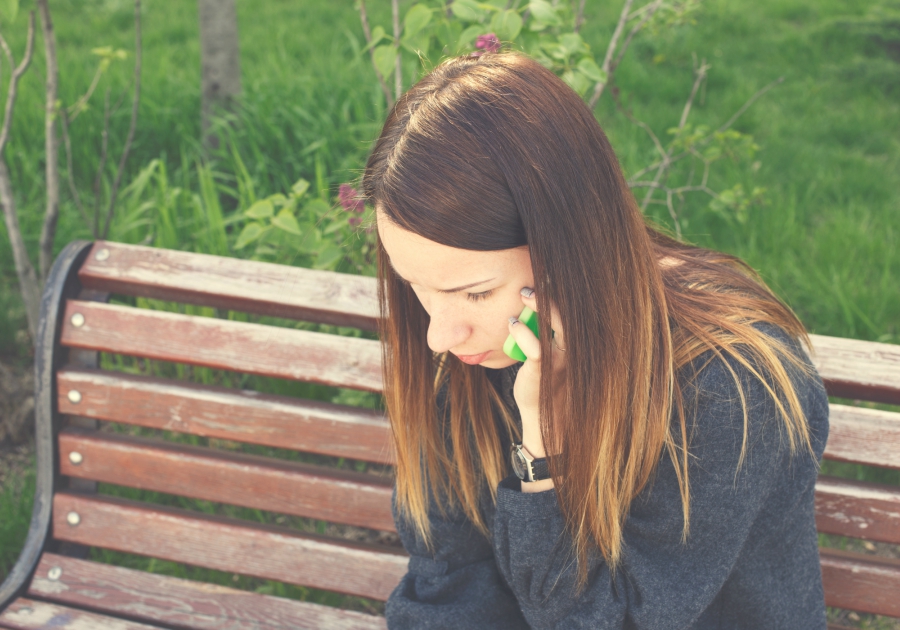The Dos and Don’ts of Defriending Someone on Social Media
Defriending or unfollowing someone on social media is the most passive way to cut people out of our lives.
Random acquaintances aside, it's a silent way of officiating the end of a relationship. Silent, that is, until the person you remove confronts you about it.
Today, social media permeates through most of the relationships around us, whether it's friends, significant others or even family members. There will come a time in your life (if you haven't already experienced this situation at least once) when you're faced with the defriending dilemma. Whatever the reason may be, you've decided you don't want to follow this person anymore and you delete them from your "friends" list.
But what do you do when they take notice and call you out for it? For those of you who haven't yet had the displeasure of navigating this situation or are currently in the midst of it, we have some good and bad news for you. The bad news is that this situation is almost always awkward. The good news is that we have some advice below to help you through it.
Defriending is as easy as a click of a button. But click this button wisely. Sometimes when we get into a fight with a friend we feel the urge to do something drastic, such as unfollow them from social media. Whether or not it's totally silly and immature, an unfollow from a close friend burns. When in doubt, resist the urge.

(via Shutterstock)
Many people have apps that alert them when they've been unfollowed on Instagram. This is one of the most common reasons to hold onto followers and friends that aren't necessarily wanted on your lists anymore. There's a good chance that someone, even a random acquaintance—but more importantly an old friend—has an app like Followers for Instagram and will notice your (not so) sneaky exit strategy.
Whether someone does have this app or just happens to notice after viewing your profile, there is always a chance they confront you about your unfollow. Whether you're the unfollower or unfollowee, neither side of the fence is fun. When you unfollow someone from social media, it's likely you go into it with the fear that they'll notice. In most cases, if the person is more than a distant acquaintance you met once at cheer camp, they will indeed feel the shade.

(via Shutterstock)
The next thing to expect is a call or a text confrontation. It's not uncommon to have an unfollow be followed by a text ranging from, "Hey are you mad at me?" to the blatant, "Why did you unfollow me?" and summed up with the question, "Are we not friends anymore?" When this happens, try to remain cordial and answer their questions as honestly as possible. You can tell them that you've felt distant lately or that you're exclusively following celebs or that seeing her posts makes you feel bad that your friendship that has drifted apart. Whatever your excuse, avoid lying. Everyone always finds out the truth eventually and that is never a pretty situation.
While it's super awkward, this confrontation can actually open up the opportunity to talk about what's really happening. Sure, maybe you should have reached out in the first place rather than passive-aggressively unfollowing them on social media, but hey, we weren't born perfect. Take this chance to air out your feelings and talk honestly about your friendship. It's likely you've both been feeling a little hurt, and this is the perfect opportunity to clear the air and begin your friendship anew.

(via Shutterstock)
Of course, it doesn't always lead to a happy ending. Just as it's possible to renew your friendship, the defriending dilemma has potential for causing animosity. If the person you unfollowed is taking the action very personally, they may say or do things that they'll later regret, such as starting a fight, calling names, or even clogging up your social media with follow requests and harsh comments. The best thing to do at this point is block their accounts. He or she may get the hint and cool down after a little time, or they may hold a grudge until the end of time. Whatever their reaction, make sure you stay levelheaded, and as always, tell an adult you trust if you feel like things are going too far.
Befriending and blowouts aren't the only two extremes. After talking with your old friend and tiptoeing through questions like, "Why don't you like me anymore," you may find yourself feeling obligated to follow them back, even if you don't want to. Some people are really good at standing their ground, while others of us (Sag, you know who you are) feel more inclined to keep the peace by pleasing others. In this case, try to honestly identify your feelings and follow what both your mind and heart are telling you to do. Social media certainly isn't the most important part of life, but it sure has become a huge part of it. Take a step back, possibly stay off of your apps for a day or two and evaluate how you feel. Were you acting rash before? Do you really care whether or not you follow this person? Does it hurt you to see their posts everyday? Answer these questions by journaling or taking a solo walk. It's always best to remove yourself and take a little me time before engaging.
It's hard to deal with a friend whose feelings are hurt via social media, but we admit we've been there before. To gain a little online empathy, check out THESE five different times we've felt invisible on social media.